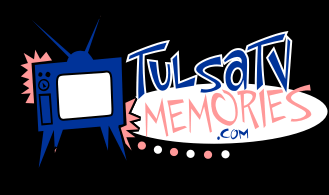
| (from Guestbook 172, 12/5/2004) Wilhelm Murg said:
I've been giving my CD collection a make-over. I traded in about 100 titles for some great stuff at Rob's Records.There is no doubt in my mind that he is the true heir to the late, great used record stores I have written about on this site. He also sold me an old blacklight Hendrix Poster that had been stapled on the wall for a few centuries. In case anyone is wondering, Rob's is based on the collection that used to be Wizzard's, but a chunk of what used to be Lee's is also in the store. Apparently the people who bought out Lee's (at a nice price) made their money back on Rob, who bought a chunk of that collection. Paul, of the late Discovery Records, has a booth at the Great American Flea Market (he had a cool reel-to-real tape of Martin Denny's "Exotica" last time I was out there). Once I did the math I realized I have been thumbing through the same LPs for nearly 25 years now! There are less pleasant ways to pass a quarter of a century.
|
Turning Base Vinyl Into Gold
One of the more mind-bending places you could shop was White's Records. "White's" was something of a misleading name as Mr. White was an African-American entrepreneur who specialized in soul, the blues, and jazz music. You must remember that this was all taking place in the early 1970's when the epic struggle for civil rights was still fresh in everyone's mind and the world was finally embracing the roots of American music. Radio had yet to be segregated. It was possible for a record store to be based in black music and not only survive, but prosper.
But all the energy that went into the outward appearance of White's first store was turned inward for its sister shop, located between Frankfort and Hartford on 46th Street North in what is now a virtually abandoned shopping center (however, even abandoned, the area still seems to draw a lot of foot traffic on a Saturday night.) The sister store had an amazing collection of jazz, blues and obscure black comedy albums (like LaWanda Page's blue stand-up discs with Slick and Skillet.) To my barely pubescent ears, the collection was like a thunderbolt from outer space. The first time I ever heard John Coltrane was in that store. But the real acid test was happening in the back, in the blacklight room. Every icon of the 1970's was taped up in there, glowing before your eyes; Wyle E. Coyote strangling The Roadrunner over the legend "Beep Beep My Ass," beautiful, topless, Nubian goddesses sporting afros that made up a third of their height, Satan burning through a floor where a pentagram had been painted, the melting Statue of Liberty with The Beatles heads on Mount Rushmore, and the usual suspects; magic dragons, tacky sexual cartoons, band logos, and hypnotic designs. There were so many images that you could read a newspaper just from the glow the posters were giving off. White's Records disappeared some time in the late 1970's.
(Read much more about this store in Wilhelm's post in Guestbook 127...webmaster)
Probably the most illegal music store to ever get a business license in Tulsa
was Tape City, a true Mom & Pop store located a few blocks North
of 21st street on Harvard. It was run by a nice older couple who looked like
the last thing they should have been doing was bootlegging music next to
an elementary school. While they sold new and used 8-tracks, cassettes, and
reel-to-reel tapes, their bread and butter were these jukeboxes that had
8-track recording heads built in (these were not hot-wired garage collages;
though I never saw these machines anywhere else, they were beautifully
manufactured.) The trick was simple; you go in, find a bunch of hit songs
you wanted, then put in your coins and buy a tape that was just the right
length and you had your own customized 8-track tape version of a K-Tel album.
I had a girlfriend who was hooked on these stupid tapes. The major letdown
was, like all jukeboxes, there is a random factor in how the songs were
programmed, thus "Kung Fu Fighting" would be followed by "You Light Up My
Life," followed by "Ramblin' Man," followed by "Slow Ride" (the single edit,
of course.) I'm not proud; I admit to doing the seventies. In the early
seventies, a series of hippie-owned record stores opened up, such as Honest
John's (which is now Starship,) Big Bad John's (next to
The Fontana Theater,)
The death of the independent record store came about with Peaches, which later turned into Buttons, and is now Blockbuster Entertainment (and now a furniture store...webmaster). Peaches was a record warehouse with over a million dollars in inventory. Virtually every domestic record in print was sitting there in the middle of Tulsa.. Around the same time Woodland Hills Mall also came in and suddenly there was no need to go anywhere else for records. Radio stations started narrow-casting and putting certain songs in heavy rotation. AM radio was turning into an all-talk format. MTV homogenized popular music taste from coast to coast. The days when the local disc-jockey could play anything he wanted were long gone. Music became contained to such an extent that even the local Sears could stock the records that were likely to sell. Though we have independent music dealers in the area, I miss the days when you could go into a record store and have no earthly idea of what you were going to come out with. (The author would like to thank to Doug Miller for driving him around to find these abandoned record stores one Saturday Night.)
|